01/65 must-watch Bengali films on the infamous partition

There have been several incidents, instead of a sequence of events which ultimately helped us achieve freedom from the colonial British rule. But the shocking turn of events during and in the aftermath of partition still manages to invoke a feeling of horror for the massive loss of lives and property. Surprisingly, only a few contemporary Bengali films have been made on the partition. Issues related to refugee camps and the agony of displacement haven’t been explored that much. Here are 5 must-watch Bengali movies based on the theme of India’s tragic partition.
02/6'Meghe Dhaka Tara' (1960)


Based on the novel by Shaktipada Rajguru, 'Meghe Dhaka Tara' is touted to be Ritwik Ghatak’s most celebrated movie. How can we forget the brilliant acting of Supriya Devi in this cult classic? ‘Meghe Dhaka Tara’ is perhaps the most touching portrayal of harsh life in Bengal following the dreaded partition. Ghatak worked as both the writer and director in this film. While ‘Meghe Dhaka Tara’ is often regarded as bleak and angry, you would find a Sitar playing in the background throughout the film. It tries to somehow soothe the viewers’ fraying nerves. It’s only one of the many extreme contradictions which Ghatak constantly puts forth in a precise and deliberate attempt.
03/6'Komal Gandhar' (1961)


‘Komal Gandhar’ explores three interconnected themes – Anusua, the lead character’s dilemma, the infamous divided leadership of Indian People's Theatre Association (IPTA) and the tragic fallout after the partition of India. Ritwik Ghatak used this film to take a dig at both the IPTA style of radical theatre and the Partition. It resulted in a political controversy in Bengal which apparently forced the director to look for work outside the state. Set in the contentious 50s, the film is mainly structured around the rivalry between two radical theatre groups. Unlike his other works, this one interestingly follows an upbeat mood with the lead pair (Vrigu and Anusua) being reunited ultimately. The music once again added a different flavour to this flick. Though it was a commercial failure, ‘Komal Gandhar’ is still counted as one of Ritwik Ghatak’s masterpieces.
04/6'Subarnarekha' (1962)


This is the last instalment of Ritwik Ghatak's Partition 'Trilogy'. 'Subarnarekha' narrates the life story of three refugees in West Bengal: a Hindu man, his little sister, and a low-caste boy in the aftermath of the partition of Bengal in 1947. Named after the river Subarnarekha, it was actually produced in 1962 but was released in 1965. ‘Subarnarekha’ was even ranked as number 11 in a critics' poll of ‘All-Time Greatest Films’ back in 1998. So, why is it called one of Indian cinema’s undying masterpieces? The reason, many believe, is ‘Subarnarekha’s universal content.
05/6'Chinnamul' (1950)


This seminal Bengali film revolves around a group of farmers from East Bengal who, following Partition, have to migrate to Calcutta. Made with the help of IPTA, ‘Chinnamul’ used people from different refugee camps to give a realistic approach to their fictional equivalents. The film followed six different principles: no professional actors, no make-up (except whiskers), no songs, no outtakes, concealed camera on all occasions and strongly regional dialect in dialogues. It turned out to be a commercial failure but managed to recover its costs as the USSR bought it on Pudovkin’s recommendation, where it was later dubbed and retitled ‘Obejdolni’. Very few people know this was Ritwik Ghatak’s first extended encounter with cinema, working as an actor and assistant director.
06/6'Rajkahini' (2015)


This movie is a great example of Srijit Mukherjee's ‘treat to watch’ style of filmmaking. The story highlighted a completely different image of the partition of India. A group of prostitutes played by Rituparno Sengupta, Saayoni Ghosh and Sohini Sarkar in this Bengali epic, who refused to leave their brothel for the creation of Radcliffe Line (a boundary demarcation line between India and Pakistan made on 17 August 1947 ). The honest and striking narrative Srijit used earned the film an 'A' certificate. The content he followed, received positive reviews although there were some factual mistakes. Such was the popularity that the renowned director later made this movie in Hindi also as ‘Begum Jaan’ in 2017 where it was Vidya Balan who portrayed the titular role.


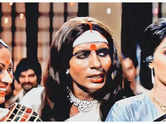


































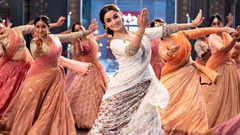




























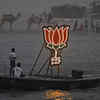
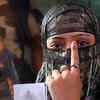
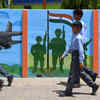
closecomments
SIGN IN WITH
GoogleEmail